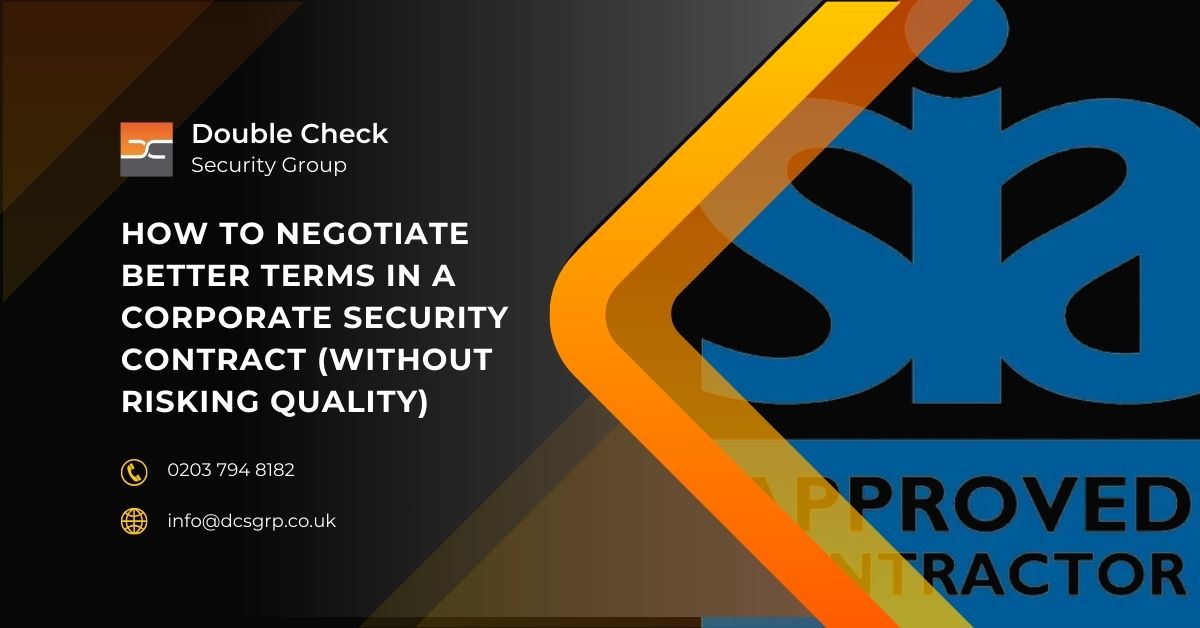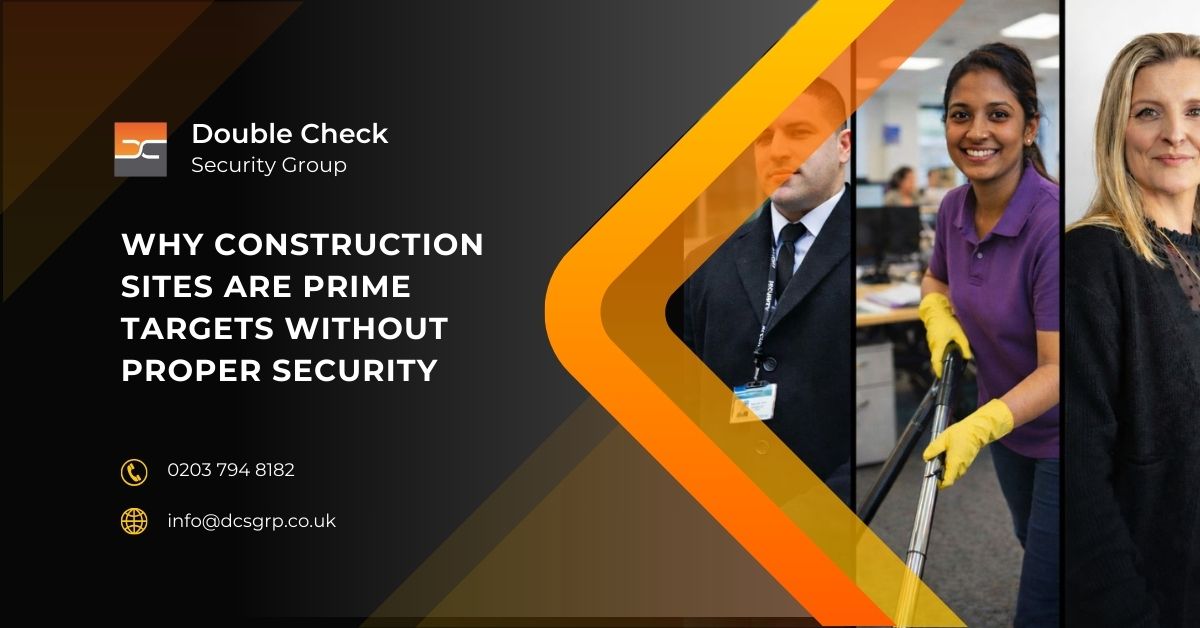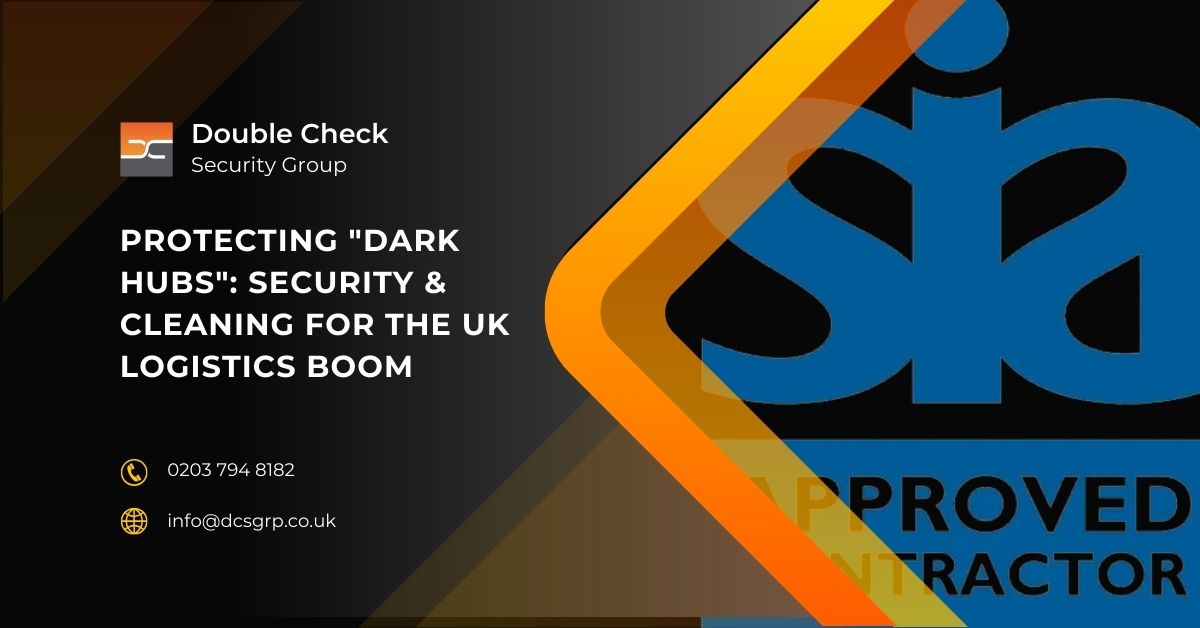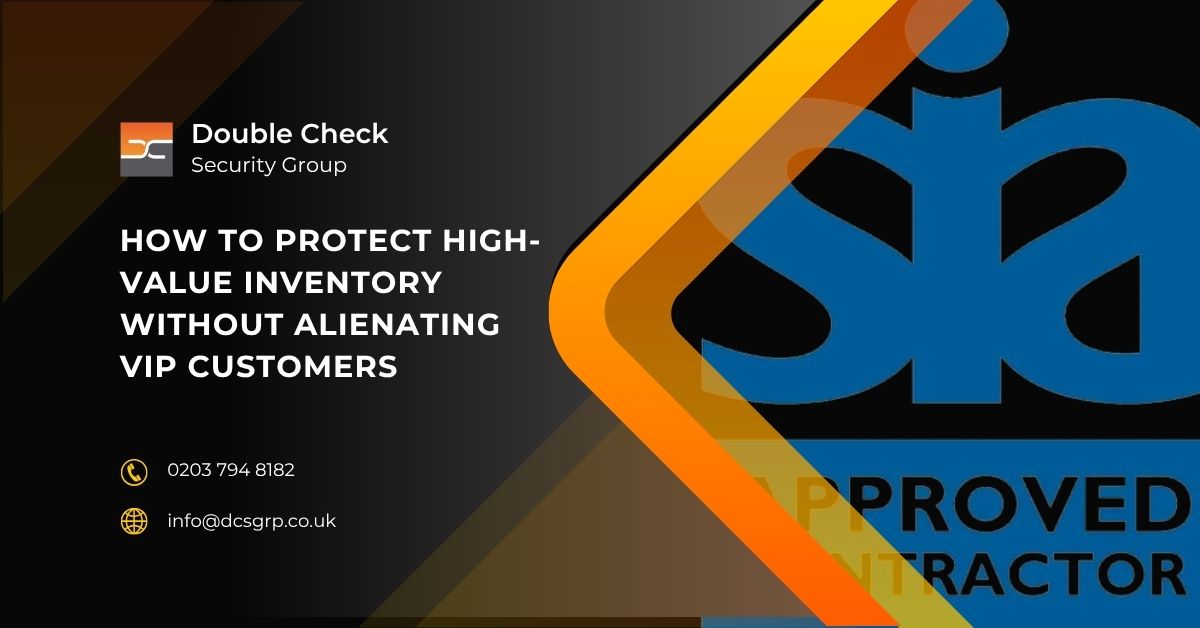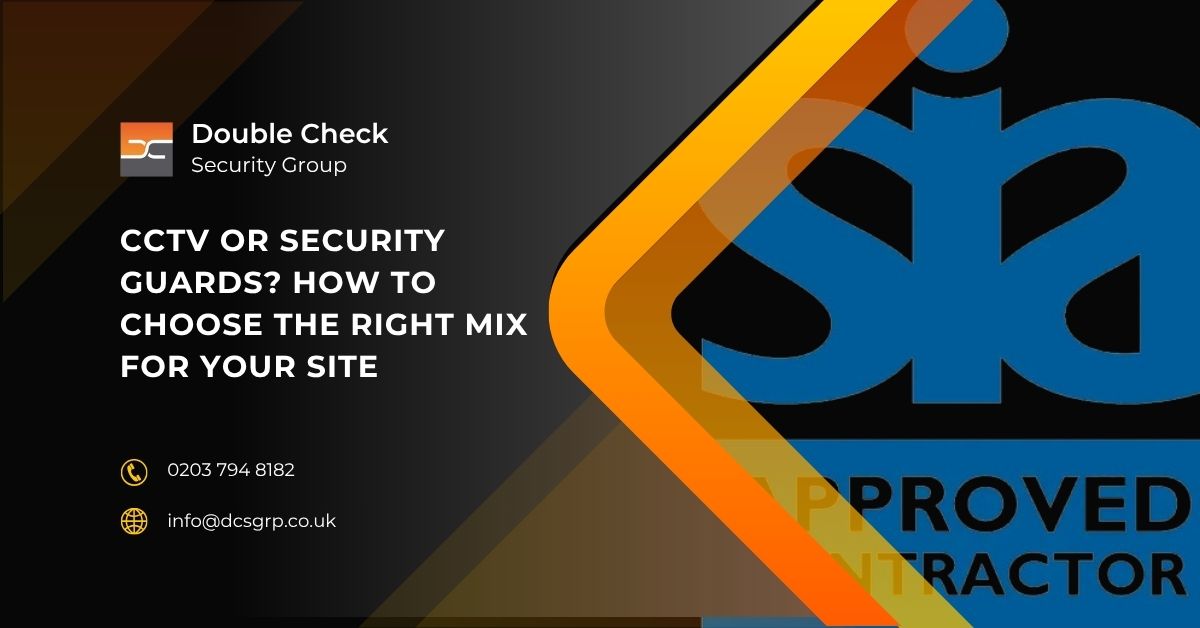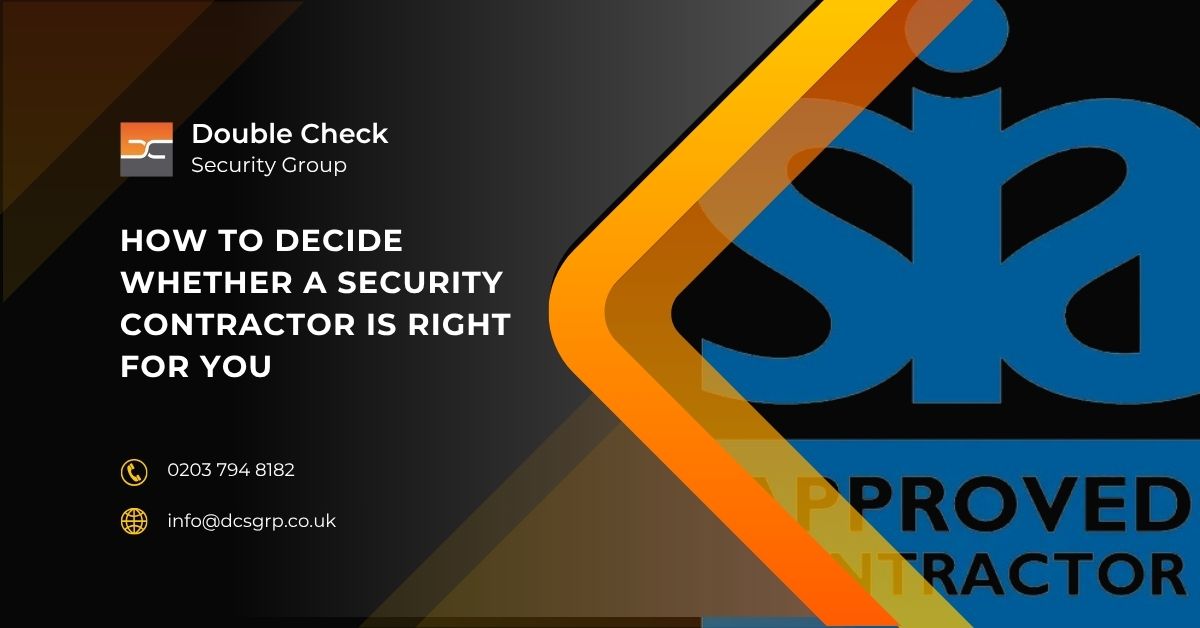How can you negotiate better terms in a security contract without compromising service quality?
Getting better terms in a security contract without reducing the quality of service starts with knowing exactly what your business needs. Instead of focusing purely on price, look at flexible agreements, clear performance metrics, and a cooperative negotiation approach. Strong contracts reflect operational realities and provide measurable accountability.
Start by Defining Exactly What You Need from Security
Before discussing cost or contract structure, make sure you know what you’re asking for. Think of it as preparing a job brief. What do you want guards to do? When do you need them? What outcome do you expect?
Start with a formal risk assessment. Each site, whether a warehouse, office or construction project, has unique challenges. Are you aiming to deter unwanted access, manage building entry or protect physical assets? Do your guards need conflict management skills or lone worker support qualifications?
Include these details in your security requirements brief:
-
Site access hours including weekends and evenings
-
Number and type of required SIA licences
-
Whether shifts should overlap to allow proper handovers
-
Standards for behaviour, dress code and visitor handling
Also consider whether the provider follows BS7858 screening for vetting, especially for higher risk environments.
How to Prepare Before Negotiation
Before contract discussions begin, gather the following:
-
A risk profile or recent site audit
-
Current post instructions or patrol tasks
-
Any incident reports or logs
-
Your schedule of hours requiring coverage
This groundwork allows you to speak clearly and confidently when negotiating with a UK based security firm.
Pro Tip : Always ask for written SLAs as verbal agreements are not enforceable.
Book a Free Security Contract Review
Want a second opinion on your current agreement? We’ll assess risks, costs and improvements.
Why You Should Look Beyond the Hourly Rate
A low hourly rate can look appealing, but the hidden costs often outweigh the savings. Security companies that undercut on price tend to rely on high staff turnover, little oversight and basic training. That leads to missed shifts, inconsistent cover and long term risk.
One missed shift on a weekend or overnight could mean an insurance breach, asset loss or needing to pay for emergency cover. The price difference disappears quickly.
Ask providers the right questions:
-
How often do guards leave the company
-
Are your staff paid at or above the Living Wage
-
Do you operate within TUPE guidelines
-
What is the supervision structure
-
What happens if a guard calls in sick
Find out how they handle lone working, weekend coverage and training refreshers. Good firms will not hesitate to provide details.
Common Pitfalls When Choosing Based on Price
Clients who pick providers based only on the lowest rate often face:
-
Unfamiliar guards arriving without notice
-
Weak communication or late reports
-
No shows and missed patrols
-
Little or no supervisory presence
These gaps create operational risks and damage confidence.
Key Contract Terms You Can and Should Negotiate
Security contracts often come as templates, but that does not mean the terms are final. Clients have room to negotiate and tailor security contracts to their operations.
Review and discuss:
-
Fixed versus rolling contract options
-
Early exit or break clauses
-
SLAs tied to punctuality and reporting standards
-
Insurance limits and who carries what risk
-
Equipment ownership: radios, uniforms, ID
-
Complaint process and follow up timelines
Build in scheduled reviews, specific coverage on holidays and detailed escalation routes. Providers expect clients to redline drafts and propose changes.
If you are using a UK security contract template, clarify whether it reflects your specific business model and location.
Pro Tip : Guard turnover is a hidden cost, even if it doesn’t show on the invoice..
Talk to a Security Compliance Expert
Unsure if your provider meets UK standards? Our team helps businesses stay covered and compliant.
Ask for Clear Performance Measures and Accountability
A strong contract should define what good performance looks like and how it will be measured. These targets protect both sides and make it easier to spot issues early.
Look for clauses about:
-
Attendance tracking and missed shift alerts
-
Guard tour logs and incident response times
-
Supervisor audit frequency and documentation
-
GPS based patrol tracking
-
Monthly SLA reviews tied to service credits or penalties
Sample KPI Checklist
-
Full shift attendance with time verified logs
-
Incidents logged within twelve hours
-
Two supervisor audits per month
-
No dark post issues on overnight patrols
-
Complaint responses within forty eight hours
Ask which tools are used, such as QR scanning, GPS checkpoints or automated dashboards. The best providers will be happy to walk you through their process.
Some UK based clients also request confirmation that the provider is part of the ACS Pacesetters or holds NSI Gold certification, a strong indicator of consistent performance and reliable security vendor accountability.
How to Keep the Negotiation Collaborative Not Confrontational
Clear, honest conversations lead to better outcomes than defensive debates. Aim to build a partnership rather than a transaction. Most providers want long term relationships, not short term wins.
To keep things constructive:
-
Focus on outcomes first, pricing second
-
Explain what success looks like on your site
-
Frame questions around clarity, not challenge
-
Ask for written records of what is agreed
-
Book a joint review three months in
What a Good Provider Will Never Say
Some responses should raise red flags immediately:
-
We do not use SLAs, it is all trust based
-
You will get whoever is available on the day
-
Reporting is not necessary unless there is an incident
When you show you are prepared, fair and clear, providers are more likely to be flexible and responsive. Trust works both ways.
A better contract comes from preparation, clarity and open dialogue. Define your needs, set benchmarks and keep negotiation focused on practical outcomes. That is how you get better terms without compromising service quality. Whether you are dealing with a local contractor or a large UK security provider, these steps apply across the board.




